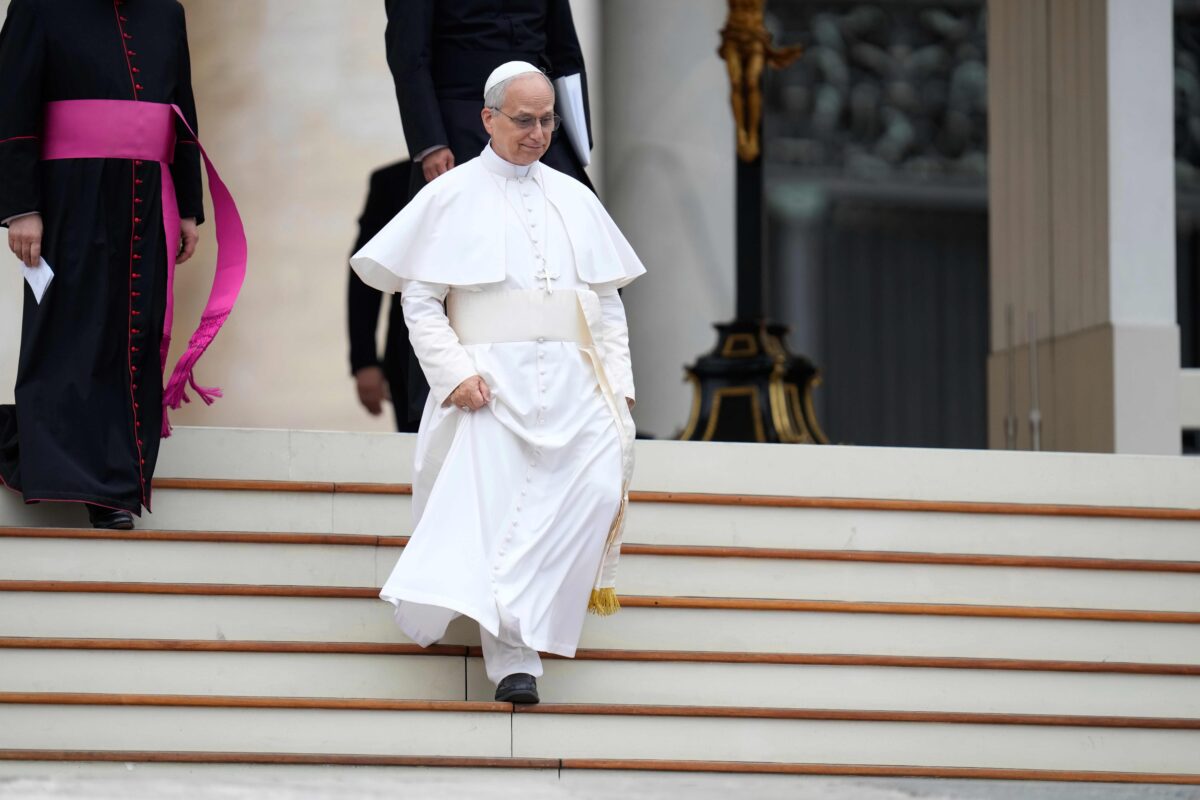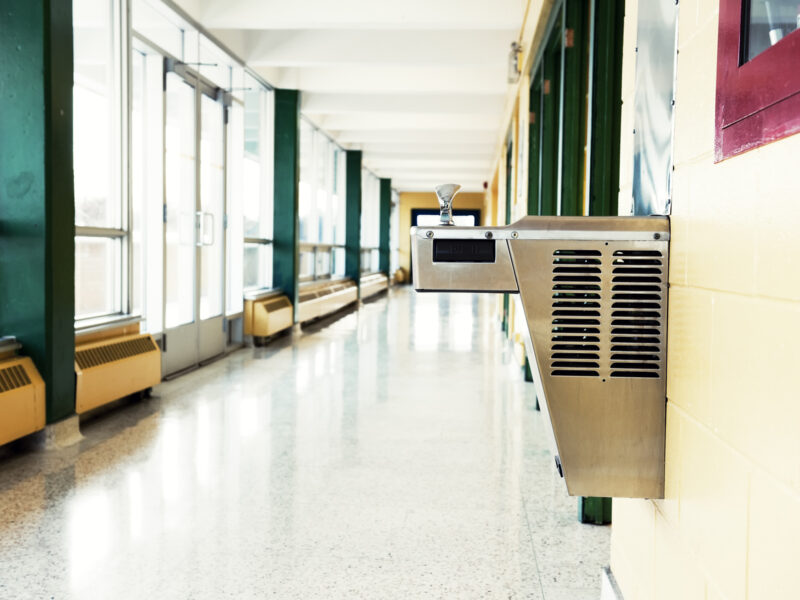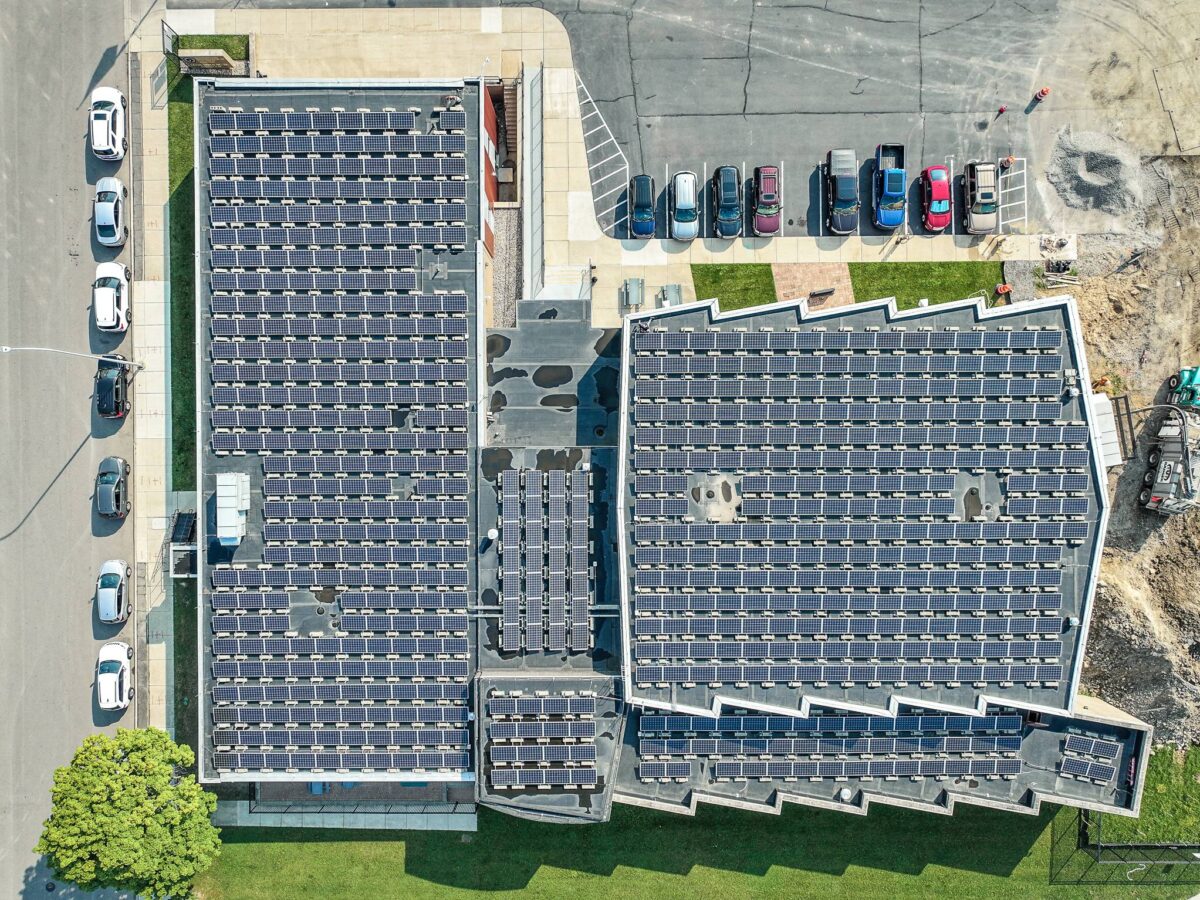Overview:
-Pope Francis reframed the climate debate, emphasizing moral compass, writes the Rev. Gary R. Wright of Saints Peter and Paul Jesuit Church.
-“We must regain the conviction that we need one another, that we have a shared responsibility for others and the world, and that being good and decent are worth it," Francis said.
-In 2024, Leo said it's time to move "from words to action" on the environmental crisis.
Those on both sides of the political and cultural divide are wondering about the new Pope Leo XIV’s perspective on various important issues. Will he uphold the legacy of the late Pope Francis or will he move in a different direction? One critical concern for many of us, including the Generation Z and millennial people in my parish, is climate disruption.
Despite the efforts by some to label Pope Francis a tradition-breaking progressive, when it came to environmental issues, Francis was actually following strong statements by his predecessors, Pope Benedict XVI and Pope John Paul II. For example, back in 1990 John Paul II declared that the “greenhouse effect has now reached crisis proportions as a consequence of industrial growth.”
What made Francis’ teaching document on care for God’s creation, “Laudato Si,” groundbreaking was that it began with the science. This was a sea change for a papal document. He started with reality and with respect for human knowledge, and then brought in the timeless teachings of the Church.
Also, the release of “Laudato Si” was intentionally timed six months ahead of the United Nations climate negotiations in Paris. “The impact was tremendous,” according to Ottmar Edenhofer from Germany, who served as co-chair of the U.N.’s Intergovernmental Panel on Climate Change. “The Vatican played a significant role in the negotiations for the Paris Agreement,” Edenhofer said.
Francis didn’t simply add a faith voice to the scientific debate; he reframed the debate. Science can tell us what is happening, but it is our moral compass that tells us what to do about it. Ecologist Gus Speth said it beautifully:
“I used to think the top environmental problems were biodiversity loss, ecosystem collapse, and climate change. I thought 30 years of good science could address these problems. I was wrong. The top environmental problems are selfishness, greed, and apathy, and to deal with these we need a cultural and spiritual transformation. We scientists don’t know how to do that.”
Faith leaders should be engaged in such a spiritual transformation, but we’ve often been absent from that mission.
Francis entered the environmental discussion and went both broad and deep in communicating our relationship to the environment. His fundamental message was that everything is connected, not only all of God’s creation, but all of our challenges, too. Our social problems intertwine with our environmental problems. Both are symptoms of a “throw-away economy” where people and resources are used and abused.
Francis dove deeper still, articulating the Christian values we need to recover: “We must regain the conviction that we need one another, that we have a shared responsibility for others and the world, and that being good and decent are worth it.”
Especially now, we need these moral convictions for a healthier world. We are facing worsening wildfires and hurricanes. A vast array of chemicals poison our land, water, and air. The Environmental Protection Agency was making progress on these issues, but is now reversing course. As one example, the EPA is threatening to eliminate a rule it just enacted one year ago that would save at least 4,500 lives a year from deadly soot pollution from power plants.
MORE PLANET DETROIT VOICES
VOICES: Michigan is the first state to require water filters in schools. Let’s make sure it’s done right.
Michigan leads the nation by mandating lead-removing filters in school drinking water, empowering families to scrutinize their school’s Drinking Water Management Plan.
VOICES: Are Great Lakes protections drowning in deregulation?
In Detroit, federal environmental cuts and deregulation threaten the Great Lakes ecosystem, with layoffs at the Great Lakes Fishery Commission and the U.S. Fish and Wildlife Service, and weakened environmental protections raising concerns about long-term impacts.
VOICES: Let’s protect federal clean energy investments
In Detroit, the IBEW Local 58 union hall stands as a beacon of sustainability, illustrating how federal clean energy investments can foster good union jobs and significantly cut energy consumption.
We must not lose hope. We must do what we can to speak up and live according to our values. I am proud of our parish’s Green Team — one of at least 400 Catholic “creation care teams” across the country that have formed in recent years. We changed our parish’s lighting to LED, got rid of Styrofoam and most plastic, and continue to pray and study to challenge ourselves to do more at the parish and in our homes.
One of the best insights we can carry forward from Francis is that taking action is crucial for our spiritual lives as well as for the practical accomplishments.
Our new pope seems aligned with this, too. In 2024, he declared it time to move “from words to action” on the environmental crisis at a climate change conference in Rome.
This may be a relief to the 40% of my parish under age 40 who face great anxiety about our march toward climate disaster. However, hope comes not only from taking action, but also from spiritual depth. We can draw encouragement from Francis’ conviction that God cares about us and is drawing us toward a better future. That transcends party lines and popes. May we work together for this better future, in love and solidarity with all.
Planet Detroit’s Voices column includes opinion pieces from our community of partners and readers. These pieces express the voices of the authors and not necessarily those of the publication.





